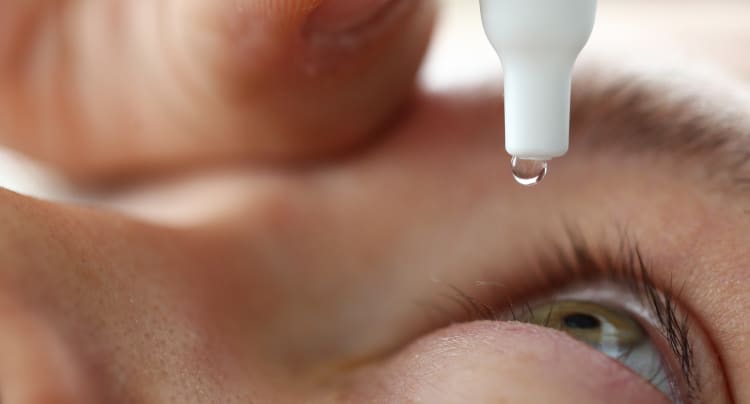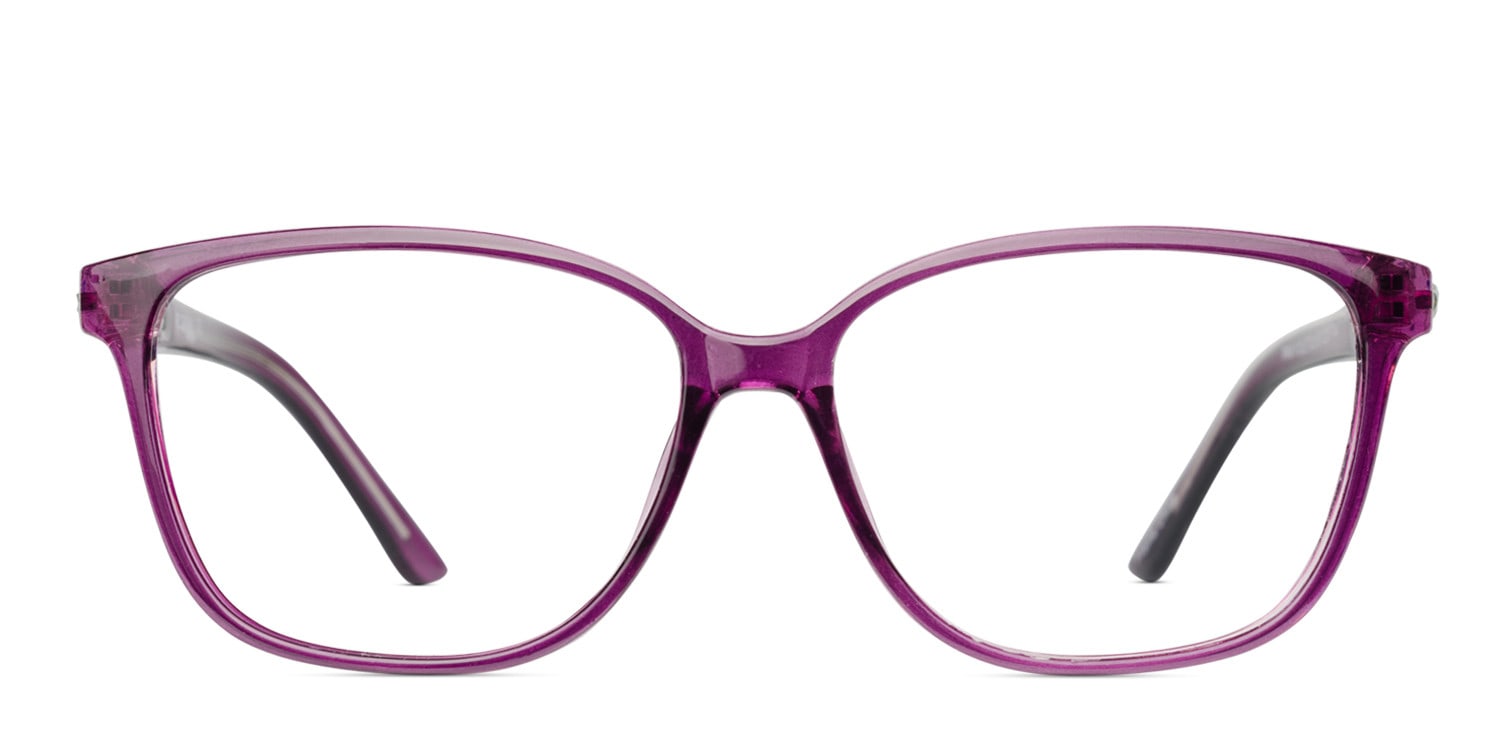Why pregnancy and vision changes go hand-in-hand.
Updated JUL 10, 2023 • 4 min read

Summary in 30 seconds
Many women consider pregnancy an exciting yet challenging time of their life. Along with the excitement and joy of a new baby, you may also be aware of the physical and mental hurdles that pregnancy brings.
One hurdle that gets far less attention is vision changes in pregnancy. Yes, many pregnant women notice differences in their eyes, especially blurry vision.
Read on to find out the more common reasons for vision changes in pregnancy, and learn about the many eye conditions that can affect the eyes of expecting women.
Also, learn how to recognize the potentially serious (and not-so-serious) eye symptoms, and when to contact your doctor about them.
Jump to content
How Pregnancy Affects Your Eyes
You may be surprised to hear that pregnancy may affect your eyes, or you may not be surprised, given the numerous changes already happening in your body.
What is the main culprit for these changes? Blame those pesky rising hormone levels and increasing physical changes in pregnancy.

So, if your eyes seem blurry or just “off” during pregnancy, take comfort in knowing that most eye changes are temporary.
Many changes are also relatively minor and return to normal within weeks after giving birth. However, some eye changes may be more serious and require immediate medical attention.
Less Worrisome Vision Changes.
- Blurry vision is common due to the extra fluid that your body retains during pregnancy. This extra fluid can alter the shape of your cornea, or the “clear window of your eye,” causing your blurry vision during pregnancy. These changes typically occur later in pregnancy and may affect your glasses or contact lens prescription. But rest assured, knowing that these changes usually resolve a few weeks after delivery.
Therefore, it is usually best to wait before switching out your glasses or contact lens prescription; oftentimes, your eyes return to your pre-pregnancy prescription. Extra time spent at a computer may also worsen your blurry vision during pregnancy. Blue light blocking glasses, frequent blinking, and taking short breaks from your computer may help to improve your vision.
Your eye doctor can help you with bothersome vision issues and determine whether you need a temporary glasses or contact lens prescription.
Popular Blue Light Shapes & Styles
- Extra fluid in pregnancy may also cause your eyelids to appear swollen. Due to hormonal changes, pregnant women can have puffy eyelids that block their side vision.
Limiting your salt and caffeine intake during pregnancy may help lessen the build-up of extra fluid.
- Dry eye may be another reason for your blurry vision in pregnancy. Wait, what?? Just when you learn that extra fluid may be an issue, the possibility of dry eye pops up.
Yes, dryness in pregnancy (again due to those pesky hormones) can cause irritated, red, and scratchy eyes. Over-the-counter artificial tears that lubricate your eyes may alleviate these symptoms, and your eye doctor can recommend the best drops for your eyes.
If you have dry eye during pregnancy, then you may need to temporarily stop wearing your contact lenses until the dryness resolves.

- Infection or inflammation of the eye, or “pink eye,” can also cause your blurry vision. Other common symptoms of pink eye are redness, irritation, and grittiness. These symptoms are also typical with other eye conditions, such as dry eye; therefore, check with your eye doctor for diagnosis and treatment.
- Eye twitching is another common eye symptom that many pregnant women may experience. The main causes of twitching are stress and fatigue. So, no surprise here that eye twitching happens often during pregnancy, which is typically a more stressful and tiresome period of life. Other causes of eye twitching are vitamin and mineral deficiency, caffeine, dry eye, eye strain, and vision changes.
- Most eye twitching is mild, harmless, and simply an annoyance. Lifestyle changes, such as more rest with naps and finding ways to alleviate stress, usually resolve eye twitching.
Also, remember to take your prenatal vitamins and to monitor your caffeine intake, which should be consumed only in moderation during pregnancy. If you have severe eye spasms or ones with pain and fever, then contact your doctor.
More worrisome vision changes.
Preeclampsia is a serious medical condition that can trigger vision changes in pregnancy. This condition is caused by high blood pressure and other medical conditions. Preeclampsia may worsen quickly, cause bleeding in your eye, and lead to other serious medical issues.
Eye symptoms to look out for in preeclampsia:
- Blurry vision
- Flashes of light or spots in vision
- Sensitivity to light
- Loss of vision (blackout areas in vision)
- Double vision
Other symptoms in preeclampsia:
- Severe headache
- Nausea or vomiting
- Shortness of breath
- Pain in the upper belly on your right side
- Severe swelling of hands or face
If you are experiencing any of the above symptoms, call your doctor ASAP or go to the nearest ER.
Diabetes, caused by high blood sugar levels, may also lead to vision changes. If you were diagnosed with diabetes before pregnancy, damage to the small blood vessels of your retina (back of your eye) is more likely to occur; thus, frequent eye exams are important throughout pregnancy to monitor for changes. Your risk for diabetic eye damage usually occurs later in pregnancy.
However, if you were diagnosed with diabetes only in pregnancy (aka gestational diabetes), you do not have an increased risk of diabetic complications that may cause bleeding in the eyes, but you may have blurry vision.
One hurdle that gets far less attention is changes in your vision. Yes, many pregnant women notice differences in their eyes, especially blurry vision.
Published December 8, 2022|Updated July 10, 2023

Related articles

20/20 Vision: What Does it Mean?
What Is 20/20 Vision? What It Is and the Best Tips to Support Eye Wellness.

What is Vision Therapy?
What visual skills are, is it possible to train those skills, and what visual therapy has to do with it.

Why Are My Eyes Red?
Why Are My Eyes Red? Reasons Your Eyes Might Be Red and Tips to Keep Them Healthy.


 Tortoise Shell
Tortoise Shell
 Aviator
Aviator
 Full Frames
Full Frames
 Square
Square
 Cat Eye
Cat Eye
 Clear
Clear